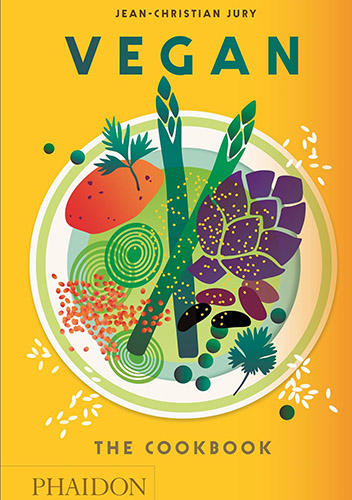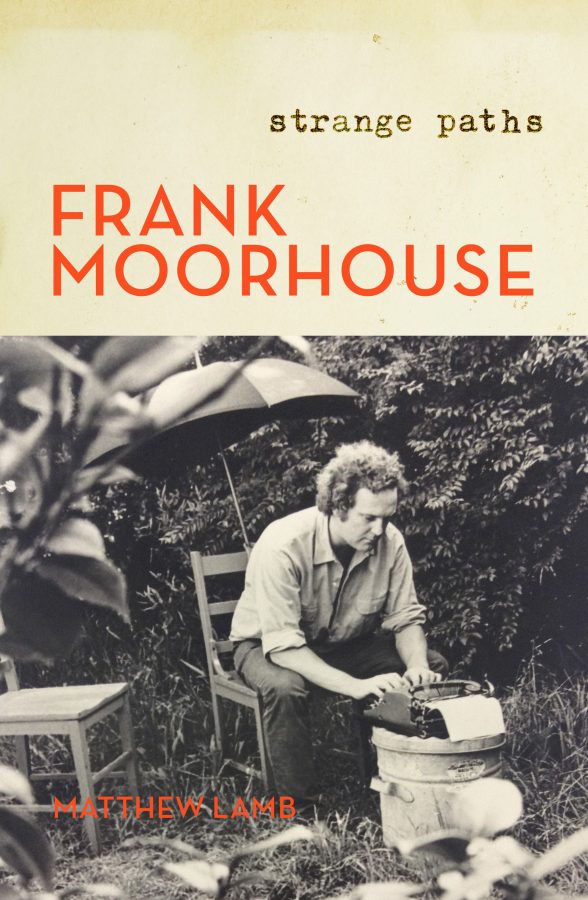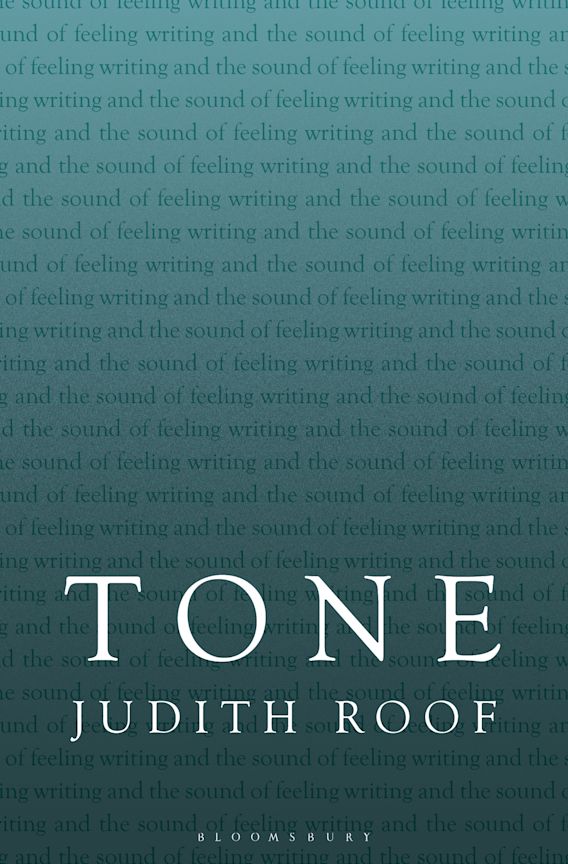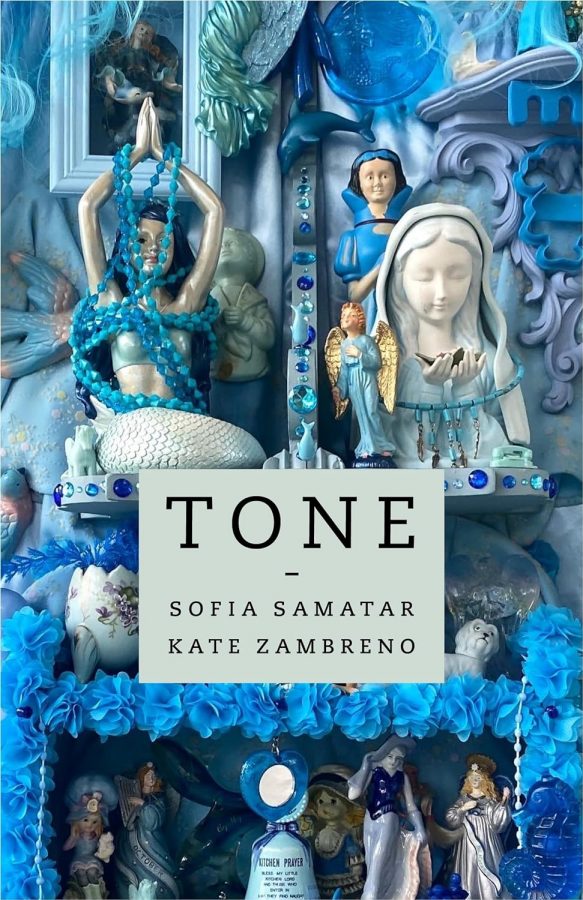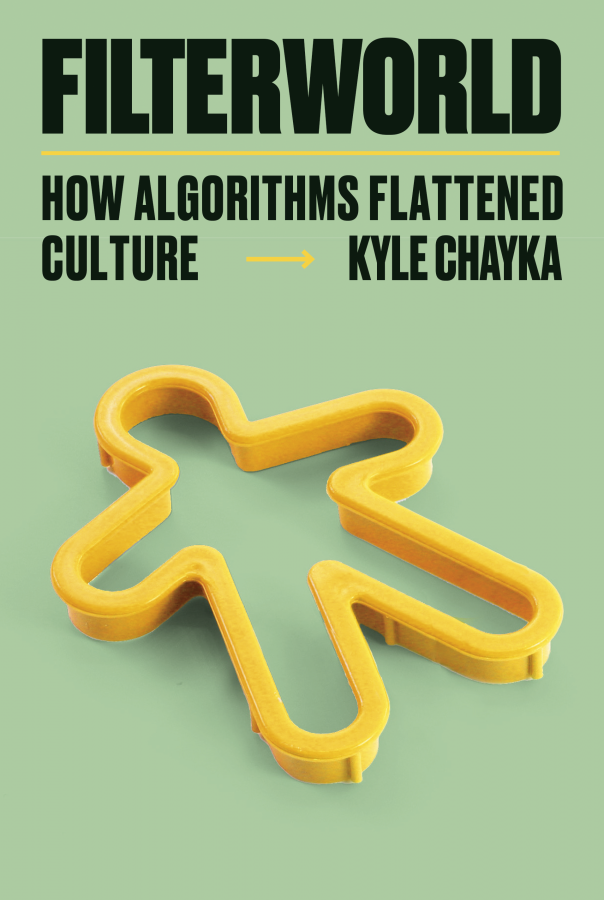The other night I dreamed I’d found a fund of wealth, unearned wealth on which the world could make no pressing claims. Where in the past I’ve fantasised about spending this kind of wealth on beneficent acts, subscriptions to expensive magazines, that night I dreamed of visiting my local organic grocer and stocking my freezer with a soy-based vegan fish product that I have come to crave, for its soft proteins, crispy skins and weedy salt-juices.
In confusing wealth with freedom, and freedom with joy, this was a normal wealth dream, craven but common, and contains only limited advice for waking life, where non-luxury goods take up the bulk of every freezer, and this is as it should be, and all is good and right. It is, however, another sign that the roles played by vegans in the culinary unconscious are changing, perhaps not in complexity but certainly in kind. Where once the vegan was considered inconvenient, ineffective, fussy and unwise, the modern vegan is a more successful type, associated with resourcefulness, sometimes with cool – in the same dreamed territory as the pilot. Because this figure, too, is suspect, involved in artifice, possible to annex as a form of wealthy whiteness that ripples through newspapers and supplants things of import, it’s possible to miss the radical nature of this change, which is far from the idea of vegans each of us once held. There is a joke about vegans that people used to tell, which depends on a naggy, oblivious eagerness to disclose their dining choices to an unresponsive world. I typed the joke, but it looked quite senseless on the page, and could not be relied on as an introductory anecdote; there is no longer the shared knowledge between setup and punchline, and without the shared knowledge, there’s no longer the joke.
While ideas don’t change all at once, they don’t just change alone, and some wave of slow change has been moving through the world, stripping the vegan of their ascetic tone and dressing them in liveliness, industriousness and fun. Like the pilot, the vegan accesses a special level of the world, an open sky of free passage and moral certainty. Like the skies, this level is attainable in theory, but in practice appears distant and inhospitable, the instruments for getting there arcane. As with gods, we find earthly ways to sample its texture. The designated vessels are mysterious and changeable, but currently the vegan spirit most visibly occupies the cookbook authors Anna Jones and Hettie McKinnon, each of whom has published a trio of works that offer vegetarian recipes which can easily be veganised.
Such vessels are interesting because in their contemporary way, they let people practice veganism, rather than convert. Where it was once inadvisable, unserious, to dabble in veganism, it is now a mark of gameness to want to try it out. This holds obvious advantages for vegans (to say nothing of sentient foods); it frees them from the expectations of the strict convert, and so protects them from the threat of hypocrisy, of slipping, moving constancy of practice into the private realm and removing the temptation of catching vegans out. It confers upon true vegans the prestige of the expert, and puts them in the category of enterprising figures who, like the pilot, have gazed on distant shores, and come home with the knowledge of what they ate and saw. For anyone interested in veganism for evil or neutral reasons, reasons to do with social image or sex or self-improvement and less to do with intactness of animals or preservation of Earth, the access points to veganism are more liberal than before, less based in ethics and more based in health food aisles. We know there is a world out there that asks vegans for more, that calls for complicated choices between leather shoes and pleather goods that poison the land with nonbiodegradable chemicals. In this other life, which we can sense is happening somewhere else, honey and oysters are discussed in lawyerly detail, as if they are the footnotes on which the whole case turns. In the meantime, while these debates are happening somewhere else, we uncouple vegan food from veganism itself.
Like Yotam Ottolenghi before them, who moves so cleverly between meats and eggs and vegetables and cheeses that all his books are vegetarian favourites, Jones and McKinnon are both beloved of sympathetic non-vegans. The ordeals of deep veganism – which is restrictive, after all – are processed through the language of clean eating, family feasting, fresh lunches, lifestyle moves. A note on a recipe from Jones’s A Modern Way to Cook (2015) is typically useful: ‘Vegans, either leave out the ricotta or you can bake silken tofu in the same way, if you like.’ In young, urban, Australian circles, their popularity seems limitless. When a new cookbook is announced by McKinnon or Jones, the release date is looked up and noted in work diaries. They are ‘cooked through’ in private but devoted Julia and Julia-style wellness projects. It is perfectly reasonable to be asked which your favourite Anna Jones is. Mine’s A Modern Cook’s Year; the ajo blanco is a hit.
Where the old, grey vegan world was a kind of netherland of watery eggplants and upsetting veggie stacks, the bright new vegan world is a festival of pastas and salads that can easily be divided into two bowls, one of them topped with almond feta, the other with dairy. Moving in from the fringes of the vegan cookbook world, the strongest vegan cookbooks are solid works indeed, by Tal Ronnen, Bryant Terry, Isa Chandra Moskowitz; each are books of purpose, comprehensiveness and clarity, with a good balance of entertainment value and actual use; they are examples of cookbooks that might stand you for months, the kind of cookbooks you’d want to go back to.
I sometimes get the feeling that something is missing from these books, or rather this book environment, as healthy as it is, and it’s not ingredients; it’s something hard to pin down. I can’t think of a way to put it that’s exactly fair, but we don’t like to do many things with food that are exactly fair, so I might as well plunge in and give it a go. For a style of cooking deeply involved with meaning and time – the idea that the world continues when we close our eyes, and other beings are worth roughly as much as you or I – it’s hard to find a vegan cookbook that has a sense of life, superseding not just a meal but a years-long chain of meals, overriding that strange idea of feeding the machine that even the nicest cookbooks can give you. It’s a big ask, obviously, but some cookbooks do it – either getting past or using well the limits of form, making ingredients and procedures feel like something else – and I have wanted something like that from the vegans for some time.
I am here to recommend an overlooked cookbook that may supply this thing we like in some serious cookbooks, cookbooks that embody that companionate quality, that suggest a relationship between food and life in language that speaks sensibly to the general cook. Stephanie Alexander has it, and Marcella Hazan, and the Moosewood Collective, and Maggie Beer, and Ruth Reichl. This thing we like is almost a standing-by-you quality that is sometimes conveyed in the sticky, comforting, sentimental language that links food to love, but which we all know is really about matter and the soul, expressed through literary qualities like honesty and clarity and voice. Vegan: The Cookbook is a substantial work of mixed effectiveness, but its errors only lend it an air of realism that substantiate the practice of vegan cooking, and make it feel, for those of us who live down here on Earth, like something that we might do for longer than a while. For all its faults, the cookbook is intimidating, comprehensive, and gets better with use, and it bears a companionate permanence – an ichor of worth – that is unmistakable in books that have it, unfakeable in those that don’t.
I opened this cookbook in a bookstore last year on a recipe with photos, although the recipe-to-photo ratio is about ten-to-one, as distinct from the lavish aids to visual imagination provided by all sensible cookbooks and the average cooking blog. It was caramelised pineapple and tofu, preparation time 25 minutes, cooking time 30 minutes, nine ingredients, one being pepper and salt. I closed the book, bought it, went home by way of a supermarket, and bought only the pineapple, because I had everything else. The process was easy. The results were sweet and soft. This was deep November, in the mourning zone when the failures of the year just past are vivid and defined and the high hopes of the year to come are still sketchy and light. I had come to veganism for the evil reason of love, because I had been dating a vegan for many years now, and while at first I had loved mainly that he was a person of principle, and could see myself loving equally, say, a particularly committed oil baron, I’d since, of course, agreed to love the principle itself, to adopt his sympathies; his causes were my own; and while it would be fun to go through life kidding yourself, at a certain point you must admit you have been changed by love. I’d also left veganism for the neutral reason of life, remembering that eating meat was often really nice, like when I was tired or because I felt like it. I happened also to be partway through an academic contract, and while it would be very dishonest to suggest that I was poor, I was finding interesting how perfectly mistimed expenses could be from income, as if a demon had planned it, which made cashew cream and saffron and other things of that kind seem less exciting than they are to the authors of certain cookbooks, who seem to have them randomly in the cupboard all the time.
Since that time, Vegan: The Cookbook by Jean-Christian Jury (2017) has moved out of that part of mind administered by cooking and into the larger world of work and planning, sleep and showers, the one in which companions, the literary kind, have ample opportunity to demonstrate their overall capacity to underpin the business of life. With its heady mix of colours, yellow and purple, which signals to the buyer they are not quite in the West – in fact, the cookbook draws from over 150 countries; the caramelised pineapple and tofu was Cambodian – there are many interesting recipes I have yet to try, including zucchini and grape stew from Italy, pomegranate and semolina cakes from Spain, peanut butter pasta (also from Italy) and chilli-cheese pie from Pakistan. But these are more interesting because they emerge from between the more boring recipes that I am more likely to make, many of them also involving tofu and rice, along with a slightly unusual incidence of pineapple, which I take as suggestive of the author’s character, though the specific meaning is hard to place.
Contemporary writing has no more interesting protagonists than the heroes of its cookbooks, from Nigella Lawson, assured and exact in the face of scandal, to Bill Grainger, with his perfect V-necked shirts and easy smiles. Jean-Christian Jury, a chef from Toulouse, does not represent himself so colourfully, at least not in his web presence or his cookbook prose. He writes in his introduction that he became vegan in the wake of a heart failure (in fact he’s had two). There are five ingredients in the world that he can’t live without, and each of them is very plausible, very hard to fault: ginger, turmeric, garlic, pepper, chilli. It is not easy to argue with the thinking behind his veganism: ‘I don’t want to age in pain, I want to age gracefully and die one day being as healthy as possible. We are what we eat! Remember that one?’ Like all contemporary vegan cooks, at least in their text, he is more concerned with humans than other animals: ‘I encourage those of you who are considering becoming vegan, to do so carefully and thoughtfully, to balance the intake of nutrients the same way as with any other eating. … Should you choose to become entirely vegan, I suggest procuring the best ingredients you can.’ It all adds up to nothing; it’s as personal as air.
Jean-Christian Jury, a pleasant name to type, seems clever, dedicated, experienced, without ego. We know that in 2007, when he opened La Mano Verde, it was the only vegan restaurant in the whole of Berlin. When he closed it, in 2015, more than half of Berlin’s 43 vegan restaurants were run by people who had worked there. I cannot give any more of the texture of the book through quotation, because there are no quotes to give, only plain descriptive titles, countries, lists of ingredients, and lines of brief instruction, which places the book in that category of entertainment that is about watching people work hard, be effective, specialised. He may be a tyrant in life. In the text at hand, he even concludes with a short section coloured in lime featuring guest recipes credited to several other cooks, many of these recipes more flashy and inspiring – spicy ganba mushroom with orzo and peas (what’s a ganba?); gargouillou of young vegetables (what’s a gargouillou?). This is so plainly good – so focused on the end user – that it casts some suspicion on all existing cookbooks, vegan or otherwise. Many chefs will tell you that it’s all about the food; so where are all your guest contributors, huh? The worst you can say about him is that he shares a snobbishness among vegan chefs against mock meats of any kind, as if we, too, dislike the rubberiness and saltiness. (We don’t!)
I’ve made cauliflower ceviche, jalapeno hummus, leek and lentil casserole, and tomato soup; but the best thing I have made is probably the apple rice pudding, preparation time 15 minutes, cooking time 15 minutes plus 20 minutes chilling, serves 4, but I doubled the size and took it to a potluck. Take 2 tablespoons of Nuttelex, 5 tablespoons maple syrup, 1 teaspoon cinnamon, 1 teaspoon nutmeg, and 2 apples, cored and chopped, and heat them in a saucepan over medium heat until simmering. Add 2 cups of cooked rice, half a cup of raisins, 2 cups of almond milk and cook over low heat for 15 minutes, stirring often. Test an apple to check it’s tender. Divide it between cups, decorate with toasted coconut flakes. When you serve it, it looks just like a little bowl of rice, but has a delicate flavour, which is just a little off, like a nod to the proximity of almonds and cyanide. Then again, the corn pie, cooked in banana leaves, is liquidy and ugly. It is not a nice flavour and not a textural success. In January, I served this to friends and followed it with a dessert of fried banana and papaya wraps that drooped around the plate in dismembered, fleshy pouches, still edible, but functionally disastrous. Ingredients in life, they said, could not be matched to outcomes, or maybe they could, but with these resources? It made me think of Kafka, who believed in hope: ‘Oh, plenty of hope, an infinite amount of hope – but not for us.’
It seems that if you recognise the lives of other beings, there aren’t too many good reasons to do animals harm, or even to place significant obstacles in the way of their own, various goals. They may not go around having sophisticated feelings, but I know plenty of people who aren’t all that distinguished either, and most of us think twice before we eat them.
But this is not a new idea. We’ve always understood this, and we’ve managed to live at least a thousand years among the vegans without having to give them any real social reward for their capacity to act on something everybody knows. Why, then, is this changing? And does it have to be now? While each reader must interpret his or her own dream vegan, it’s hard not to notice an apocalyptic turn in the kind of press that consecrates our food trends, and shapes which types of people get the culinary awe. Just as the financial pages currently suggest investing in things people will need in hard times, the current lifestyle artefacts that seem the most worthwhile are the ones making suggestive glances towards some future time in which life may have altered substantially for the worse. Disaster preparedness is exciting on its own, but it’s even better when it feels like shopping.
Of all the vegan cookbooks you would need in these dark times, even the mystic-sounding Veganomicon lacks the clearest sign that a cookbook means business and is a legitimate love object, the sense that one might reasonably use it to brain intruders, which is a feature of Stephanie Alexander’s books, and Maggie Beer’s as well, with their harsh corners and heavy covers – the seriousness of girth. Vegan: The Cookbook shares this terrorising quality; you wouldn’t want it coming at you in the dead of night. Anyway, we’re all rehearsing for the afterlife, where we may be judged by animals of older, stranger kinds.
